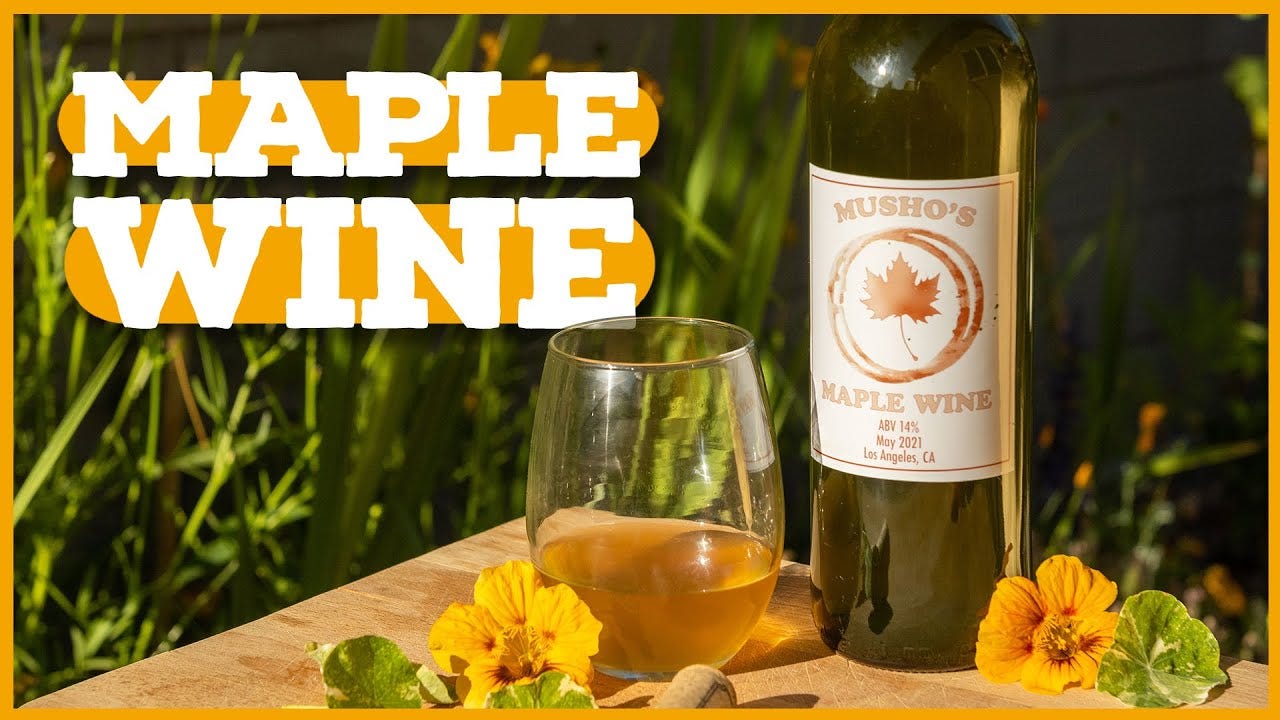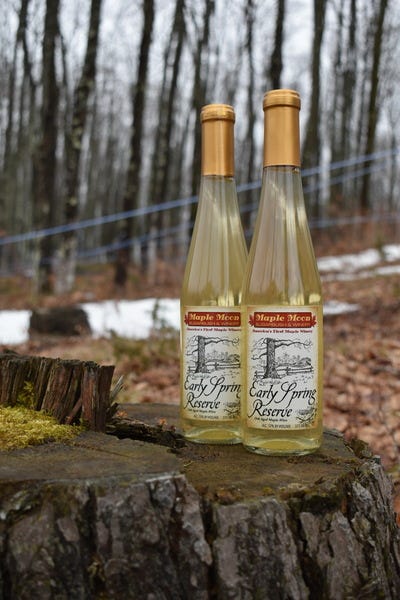Let's Talk About Maple Wine
Dave intro'd it in Ep 3, and Dallas got to taste it in a bonus behind-the-scenes video in Ep 4, and since then we've been able to research it a bit more, so let's discuss! It's FASCINATING stuff.
So maple wine isn’t quite as unique or recent of a thing as we thought when we filmed Episodes 3 and 4. Though it is still pretty damn unique and wine made out of 100% maple syrup is actually very new.

The evolution of what is called “maple wine” started with common grape wine varietals that had maple syrup added to sweeten them. Lang Vineyards in British Columbia has a line of “Original Maple Wines”, one red blend, one white. Both are sweetened with maple syrup but are not made from maple syrup - the maple sugars weren’t fermented and turned into dry alcohol.
But recently there have been wineries such as Aaronap Cellars in Massachusetts that produce a 100% pure maple wine, though even here this is the (imho) expected approach of transforming it into a sweet, delectable desert wine. In 2019 The Cornell Maple Program worked with students at Cornell University to determine how best to formulate a dependable recipe for Maple Wine. And even they came to the conclusion that the best will be at least semi-sweet, to anchor the impact of the wine to the traditional sweetness associated with maple flavors.
The winery we showcased on the show - Maple Moon Winery - is the only place I can find that produces a perfectly dry, white wine made entirely of maple syrup and aged in oak.
I did find one Canadian winery here that also had a self-described “dry” maple wine, but plainly sweet maple wines are more of the go-to thing, whereas dry maple wine has yet to take hold.
And look, we get it: Dallas and I love new experiences. Unless a thing is viscerally attacking our tastebuds and compelling us to spit it out, chances are we’re “enjoying” the novelty, if nothing else. And yet even for us, it took an adjustment period for our palates to grasp dry maple wine. As the Cornell folks determined: maple flavors practically BEG for sweetness to follow them. And as I mentioned in the show (repeatedly, sigh…I had to edit a chunk of my repetitiveness out of the final cut, it was so egregious), your brain can’t quite accept the flavors it’s receiving without the usual resultant sugars. You taste maple, and then…nothing. Dryness. It’s almost literally mind-blowing, in the sense that your mind blows a gasket and refuses to process.
But to be fair: it took our palates a while to grasp wine wine, like the standard shit made from grapes. Few are born to love this kind of complex fare: coffee, wine, beer, liquor - these are learned, acquired tastes. Dry maple wine delivers a flavor vocabulary largely its own, and so the learning curve grinds its gears all over again just for it.
But we, for two, are fans. If you can source out some dry maple wines in your area, or from places able to ship to you: DO IT. And buy a few - you’re going to want the time to figure out if your palate adjusts to it or not. If nothing else, you will be fascinated by it. Even if, ultimately, you can’t say you particularly like the stuff.





